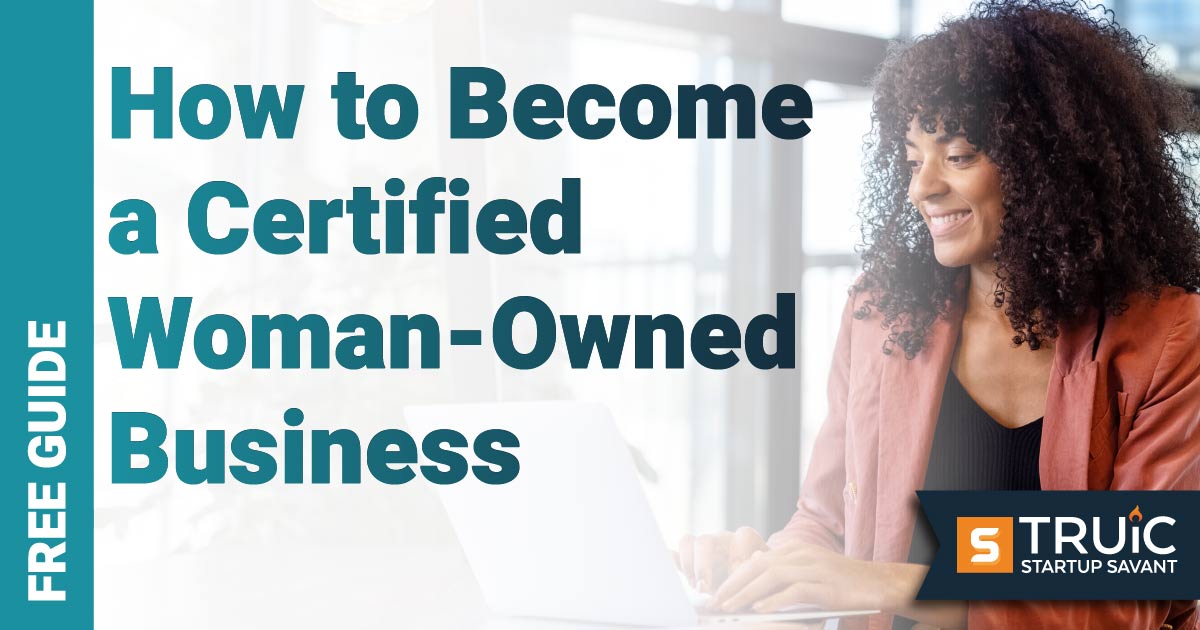National Women Business Owners Corporation (NWBOC)
WBE Certification, WOSB Certification, and EDWOSB Certification

Last Updated: By TRUiC Team
Though women are starting businesses at a higher rate than ever before, there are still a number of barriers blocking female entrepreneurs from success.
Though women are starting businesses at a higher rate than ever before, there are still a number of barriers blocking female entrepreneurs from success. One such obstacle is the lack of resources made available to women in business.
Due to a lack of diversity in executive positions and general underrepresentation in industries like technology and engineering, women oftentimes suffer from a lack of support in their careers. That’s why it’s vital for female entrepreneurs to be aware of resources like the National Women Business Owners Corporation (NWBOC) that are designed to boost their success — no strings attached.
NWBOC — Supporting Businesswomen
We've explored the history and mission behind the NWBOC, a third-party women-owned business certifier. You can also read our comprehensive guide on how to become a certified woman-owned business.
Skip Ahead To:
What Is the NWBOC?
The NWBOC was actually the first organization to create a national certification program for women-owned businesses created in response to research by the Procurement Special Interest Group of the National Association for Women Business Owners. This research, done over 20 years ago, revealed that a large number of corporations and governments were overlooking women-owned businesses for contracting opportunities. Identifying a sizeable national desire to change this, NWBOC was subsequently founded in 1995 with the sponsorship of IBM and the support of hundreds of private-sector professionals.
Since then, the NWBOC has evolved into so much more than just a certifying agency for women. In fact, the success of its Woman Business Enterprise (WBE) certification program spurred the organization’s leaders to announce other programs, such as certification for veteran-owned businesses following the same mission, launched in 2013.
Today, the NWBOC is also a third-party certifier for Minority Business Enterprise (MBE), Woman-Owned Small Businesses (WOSB), and Economically Disadvantaged Woman-Owned Small Business (EDWOSB) certifications.
In addition to the support it offers small businesses, the NWBOC also supports suppliers through a supplier development program that can earn them a Certified Plus Certificate. This certificate gives suppliers more visibility through credentials for potential corporate buyers, and aids with core issues like quality control, scalability, and customer service. You can navigate the NWBOC’s various offerings on its website.
About NWBOC Certification
What is Certification?
Certification legitimizes companies, offering them a chance to be vetted within the federal and state procurement area. As explained on the NWBOC website, “When certified, you are able to bid on open market solicitations that only a certified business and/or owner are able to submit proposals for. Even without a set-aside designation, you are vetted, and this affords you a slight advantage on open market bids that do not contain a certification designation.”
In short, certification puts your company in an exclusive ring where you can access more business opportunities.
Is It Right for You?
While it has many benefits, certification is not right for every business. It is typically useful for companies whose products/services are targeted at corporations, retail, and/or government agencies, as well as companies that have the capacity to provide quality service and products on large contracts. Additionally, your company must meet the right criteria to qualify.
How Do You Qualify?
As mentioned above, the NWBOC offers a handful of different certifications, including women-owned business, veteran-owned business, minority-owned business, and economically disadvantaged women-owned small business certification.
The WOSB and EDWOSB programs are different because they are industry-specific, but generally here are the requirements your company must meet in order to qualify for certification, according to the NWBOC website:
- The Veteran, Woman, Economically Disadvantaged Woman, or Minority Woman owner(s) must have uninterrupted decision making and control of the entity. 51% or greater of assets, outstanding no par voting shares, or outstanding shares need to be owned and controlled by the owners applying
- The owner(s) applying must be United States Citizens, Naturalized United States Citizens, or Permanent United States Residents with proper unexpired legal evidence of their citizenship status (Work Visas and Green Cards are not acceptable to apply)
- For EDWOSB, the owner(s) applying must be determined to be within a threshold of economically disadvantaged status. For further details on these thresholds or updates, visit the NWBOC resource page or www.sba.gov
To view the full list of requirements, read the website.
How to Apply
The paperwork for the WBE, VBE, MBE, and WOSB/EDWOB applications are all online. However, you’ll need to complete a number of steps before mailing in your application:
- Check that your company meets the Small Business Administration (SBA) standards for small businesses for appropriate North American Industry Classification Systems (NAICS) codes. Also, verify your business type is underrepresented or substantially underrepresented according to the SBA’s NAICS codes for women-owned companies.
- Gather all of the required documents needed in the application. If there are documents that don’t apply to your company, you must provide a written explanation stating why.
- Review your financial and legal information to make sure your documents affirm the correct ownership and control.
- For WOSB/EDWOSB, WBE, MBE, or VBE certification alone, include a check for $400 made payable to NWBOC. If you want to apply for WBE and WOSB/EDWOSB certifications simultaneously, the check should be for $700.
- Submit one copy of the application, sworn affidavit, supporting documentation and application fee to NWBOC (address is on the application).
It will generally take around 90 days from the date your documentation is received for a decision to be made. As long as your company meets the qualifications and your paperwork is submitted correctly, there is no reason your application shouldn’t be accepted.
It’s important to note that certification must be renewed each year and requires an initial renewal fee of $200 or $300 if your company's gross sales topped $2 million.
Benefits of Certification
Why go through all the hassle? The NWBOC has a whole page dedicated to the many benefits of certification. Principally, certification increases your company’s business opportunities through access to a current list of the hundreds of supplier diversity and procurement executives at major corporations and government entities that accept the certifications.
“More than ever, companies are looking for certified and qualified WBEs, MBEs, and VBEs,” reads the NWBOC website. “In many cases, they will only work with businesses that have these credentials.”
In addition to national recognition, certified businesses gain access to a number of events open exclusively to small business owners, such as ACCESS, NWBOC’s annual conference featuring networking, speakers and workshops, and one-on-one meetings with corporate and government suppliers. Other capacity development programs like mentorship and education (training and webinars) are also made available to certified businesses.
The NWBOC also has a list of prestigious awards programs to recognize the accomplishments of its members. Ultimately, certification allows you to access a community of support and gain increased recognition and business opportunities.
If you do gain certification, make sure to take advantage of all the resources NWBOC offers, not just the obvious ones.
Become a Certified Woman-Owned Business In...
- Alabama
- Alaska
- Arizona
- Arkansas
- California
- Colorado
- Connecticut
- Delaware
- Florida
- Georgia
- Hawaii
- Idaho
- Illinois
- Indiana
- Iowa
- Kansas
- Kentucky
- Louisiana
- Maine
- Maryland
- Massachusetts
- Michigan
- Minnesota
- Mississippi
- Missouri
- Montana
- Nebraska
- Nevada
- New Hampshire
- New Jersey
- New Mexico
- New York
- North Carolina
- North Dakota
- Ohio
- Oklahoma
- Oregon
- Pennsylvania
- Rhode Island
- South Carolina
- South Dakota
- Tennessee
- Texas
- Utah
- Vermont
- Virginia
- Washington
- Washington D.C.
- West Virginia
- Wisconsin
- Wyoming


